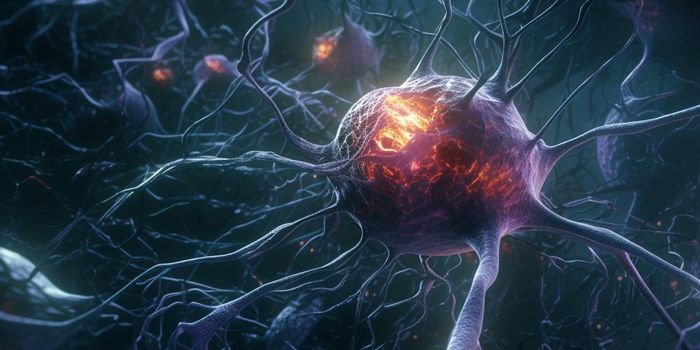Many Kids with Inherited High Cholesterol Don't Get the Treatment They Need
Our bodies need cholesterol for certain crucial functions; it's a vital component of cell walls, for example. But there are different types of cholesterol, and their levels have to be carefully regulated by the body. High levels of low-density lipoprotein (LDL) cholesterol, known as the 'bad' cholesterol, is linked to cardiovascular disorders, for example.
High cholesterol can be due to smoking, obesity, a sedentary lifestyle, or a poor diet, but it can also happen because of genetic mutations in a condition called familial hypercholesterolemia (FH). People with FH face an increase in the risk of atherosclerotic cardiovascular disease (ASCVD) starting in early life. For this reason, guidelines state that children with FH should be screened at age two and again between age nine and eleven.
The research explained in the video above has shown, however, that these children are not being properly screened. Reporting in The Journal of Pediatrics, scientists assessed the records of 500 kids that had FH and determined that their diagnosis had happened, on average, at age nine. That is seven years later than the guidelines recommend. The data for the study was taken from the CASCADE FH Registry of the FH Foundation.
"It is critical to identify children with familial hypercholesterolemia in order to prevent cardiovascular disease through early treatment intervention," said the principal investigator of the CASCADE FH registry Sarah de Ferranti, MD, MPH, chief of the division of ambulatory cardiology at Boston Children's Hospital. "The U.S. guidelines are clear but there is a low level of implementing these guidelines that put nearly 300,000 children at risk."
In FH, low-density lipoprotein cholesterol (LDL-C) levels are high from birth, which can lead to early-onset ASCVD, increasing the risk of heart attack and strokes.
However, patients can be treated and disease onset can be prevented. The recommendation is for FH patients to initiate treatment before they reach age ten. A recent report in the New England Journal of Medicine showed that doing so (using statins) reduces a patient's risk of cardiovascular events compared to their parent or parents that has or have the same disorder.
The researchers determined that kids in the registry started therapy at an average of eleven years old, which tended to be statin medications - about 56 percent of 271 patients were on statins. The scientists also found that 23.5 percent of the children that should have been getting treatment were not being treated at all when they started the study. Only 39 percent of the study participants had LDL-C levels that were within the recommended range; the others had levels that were too high.
The work shows that more efforts should be made to treat these kids, who may have dramatically improved health outcomes later in life if they get the medicine they need at the right time.
"Consequences are devastating when familial hypercholesterolemia is missed, with one in ten heart attacks under 45 caused by FH. Yet evidence shows that we can dramatically change this paradigm with early identification and treatment," said Katherine Wilemon, founder and CEO of the FH Foundation. "We will continue to advocate for increased research and awareness of FH as a common cause of premature heart disease in all members of affected families."
Sources: AAAS/Eurekalert! via The Familial Hypercholesterolemia Foundation, Journal of Pediatrics









